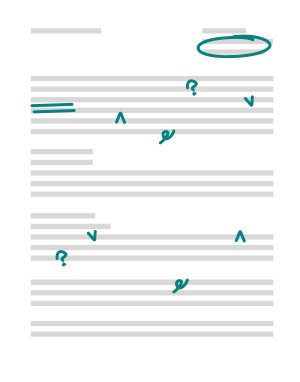Postpartum Nurse Sample
Download and customize our resume template to land more interviews. Review our writing tips to learn everything you need to know for putting together the perfect resume.
A Postpartum Nurse supports mothers after delivery of their child. Below is a general job description:
Postpartum nurses are medical professionals who care for mothers and newborns during the days following the birth. They use a wide range of professional skills to provide physical and emotional support to mothers during their recovery period. They also use their extensive knowledge of newborn healthcare to address any complication, report medical symptoms and make sure that all the babies under their care are safe and healthy. Postpartum nurses work in fast-paced medical environments like hospitals and birthing centers. They are equipped to work alongside a team of other doctors and nurses and to handle high-risk situations. Indeed
If this is the kind of job you want or you have, you're in the right place! We have a resume example for you and three tips from our professional resume writers below.
Expert Tip
You should never use a creative resume
Many job seekers think that an eye-catching resume template will help them stand out to hiring managers and increase their chances of landing an interview. This is a myth put out by resume builders that value design over content.
The truth is that most hiring managers prefer a traditional resume format.
Creative resume templates, like the one pictured here, can actually hurt your chances of landing an interview. Instead, you should use a basic resume format that quickly communicates your basic information and qualifications–like the one included below.
Postpartum Nurse resume (text format)
How confident are you feeling about your resume? If you need more help, you can always refer to the following resume sample for a position.
Name
Title
City, State or Country if international
Phone | Email
LinkedIn URL
POSTPARTUM NURSE PROFESSIONAL
A highly competent, dedicated, and compassionate Postpartum Nurse showcasing 15+ years of experience expertly assisting patients after childbirth in hospitals delivering 8000+ annually. Consistently provides high-quality care to patients while minimizing discomfort, consistently monitoring vital signs to promote a healthy recovery. Respected for the ability to immediately develop trust and relationships with patients and families, comforting them during one of the most important life-altering events. Expertise in labor and delivery, postpartum, newborn care, family education, complicated deliveries, and Physician collaboration. Known as a team player who goes out of the way to improve care in all situations, improving the birth experience for all parties involved.
CORE COMPETENCIES
Labor and Delivery
Epidurals
Cesareans
Postpartum Care
Monitoring
Analgesia Administration
Newborn Care
Emotional Support
Electronic Charting
PROFESSIONAL EXPERIENCE
Postpartum Nurse
ZipJob, New York NY | Year to Year
Responsibilities
Developed lasting relationships with diverse clients while caring for Mothers after deliveries.
Cared for patients in triage, labor, post-partum, and the newborn nursery.
Worked within a team in busy environments, responsible for a 1:5 nurse/patient ratio.
Repeatedly commended by patients and peers for the outstanding quality of care, received constant mention in care survey responses.
Chosen as a preceptor of new staff as well as student nurses
Assessed, planned and evaluated patient care needs before and during pregnancy including obtaining patient history and assessing for labor risk factors.
Provided care for patients utilizing fetal and maternal monitoring equipment.
Managed the patient's pain including epidural and patient controlled analgesia administration.
Assisted physician during delivery, treatment, examination, and surgical procedures.
Monitored, recorded and communicated patient condition as appropriate utilizing computerized documentation systems.
Provided patient and family education on labor, pain and newborn care.
Labor and Delivery Nurse
ZipJob, New York NY | Year to Year
Responsibilities
Cared for patients in labor with uncomplicated deliveries (1:3 nurse/patient ratio).
Managed patient care in the OR during cesarean deliveries, supporting the mother in a stressful situation.
Maintained accurate, detailed reports and records using EPIC.
Modified patient treatment plans as indicated by patients' responses and conditions.
EDUCATION
Complete School Name, City, St/Country: List Graduation Years If Within the Last Ten Years
Complete Degree Name (Candidate) – Major (GPA: List if over 3.3)
Relevant Coursework: List coursework taken (even include those you are planning on taking)
Awards/Honors: List any awards, honors or big achievements
Clubs/Activities: List clubs and activities in which you participated
Relevant Projects: List 2-3 projects you have worked on
Everything you need to write your postpartum nurse resume
Now that you’ve seen an example of a job winning Postpartum Nurse resume, here are some tips to help you write your own. You should always begin with a summary section. Remember to use basic formatting with clear section headings and a traditional layout. Finally, be sure to include top skills throughout your resume. We’ve included several examples common for Postpartum Nurse below.
Let’s start with your resume summary section.
1. Summary
The resume summary replaces the out-of-date resume objective. A summary outlines the most impressive parts of your resume for easy recall by your potential employer, while also serving to fill in personal qualities that may not appear elsewhere on the page. Remember that summaries are short and consist of pithy sentence fragments! You can check out the Postpartum Nurse resume example for more information!
Expert Tip
Always start with your most recent positions at the top of your resume. This is called reverse-chronological format, and keeps your most relevant information easy for hiring managers to review.
2. Formatting
Our experts recommend you start your resume with a resume summary, like the one above. Other common sections are Work Experience, Education, and either Skills or Core Competencies. Here are some guides from our blog to help you write these sections:
Some resumes will include other sections, such as Volunteer Experience or Technical Skills. When it comes to what sections you need to include on your resume, you will know best!
Other sections for you to consider including are foreign language skills, awards and honors, certifications, and speaking engagements. These could all be relevant sections for your resume.
3. Appropriate skills
Your resume should include all your skills that are relevant to your target job. Skills include both hard skills and soft skills. Hard skills are the technical know-how you need to complete a job, such as data analysis or HTML. You can include hard skills in your core competencies section. Soft skills are harder to quantify, so they require more information to explain your aptitude. Some top soft skill examples include communication, problem solving, and emotional intelligence. Use several examples of how you use your key soft skills throughout your work history, profile summary, and resume title.
4. Experience section
Your Work Experience section should make up the bulk of your resume. This section should include your relevant job titles, companies that employed you, and the dates you were employed.
Your Work Experience section should make up the bulk of your resume. This section should include your relevant job titles, companies that employed you, and the dates you were employed. Most people will finish this section by listing daily duties in short bullet points. Don't be one of them! To make your resume stand out, you need to add your accomplishments and key skills to your resume's Work Experience section. Here are three tips from our experts:
Use the STAR method to describe a situation, task, action, and result. This is adapted from a behavioral interview technique, so interviewers will recognize the format. it's also a great chance for you to organize your key accomplishments.
Don't forget about LinkedIn! The majority of employers are going to look you up on LinkedIn, so it's smart to make sure your LInkedIn profile is up to date and include your URL in your resume's contact section.
Always include a cover letter. Not everyone will bother, so it helps you look like a serious job applicant. It's also your chance to introduce yourself: who you are, why you're applying for this job, and how you want to proceed.
Let’s wrap it up!
Standout resumes will include a resume summary, a traditional reverse-chronological layout, and the skills and experience relevant to your job target. This resume example shows how to include those elements on a page. It’s up to you to insert your personal compelling qualifications.
Keep your resume format easy to scan by both humans and computers; our resume template is designed by our experts to satisfy both audiences. And be sure to include your own skills, achievements, and experiences. Job-winning resumes are resumes that successfully market you, leading recruiters and hiring managers to want to learn more!
Finally, emphasize your interest with a customized cover letter. When writing, remember that the resume and cover letter should support each other. Check out our cover letter tips and examples for more advice.
Didn’t get the specific answers you were looking for on this page? Hire a professional resume writer to get the advice you need to land your next job.
Related posts:




